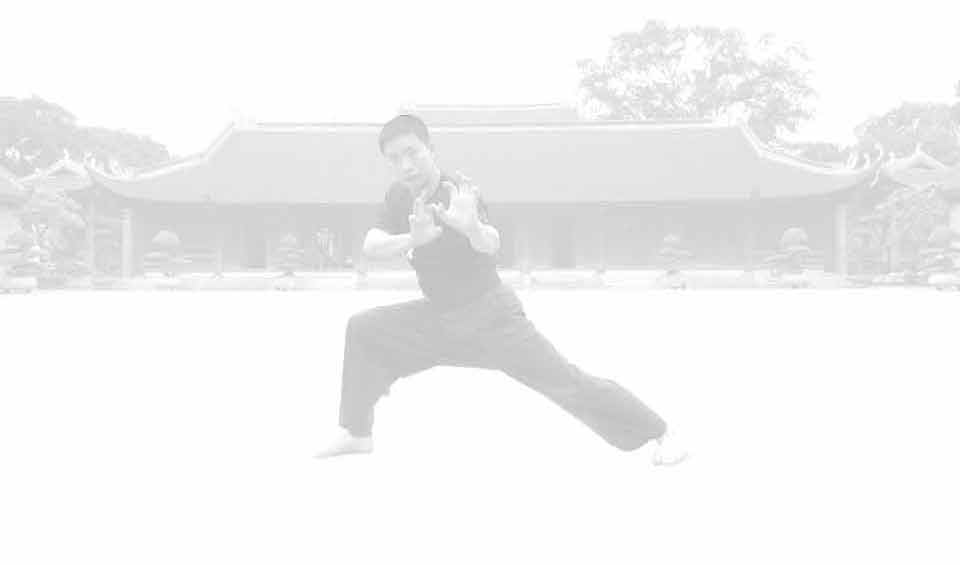| The story and philosophy of Pham Vu Quang reflects the turbulent history of his homeland. Situated at the crossroads of different cultures and civilizations, Vietnam has always relied on martial arts to protect its cultural and political independence: as long as there have been Vietnamese people, they have practiced martial arts. Yet Vietnam's martial arts were transformed by a 1000 year-long period of colonization by China. During this time Vietnamese language, culture, and martial arts were deeply influenced by both the Buddhist and Taoist traditions. Thus it is to the Buddhist Shaolin Temple in China that Quang traces his martial arts lineage. In doing so, he reflects Vietnam's fluid ability to adopt and adapt the best of other cultures in order to create something that is uniquely Vietnamese and fiercely independent.
Quang first began practicing martial arts in 1976 at the age of 6. This was a time when the State sought to control all aspects of Vietnamese society. With the exception of Tai Chi, martial arts training was restricted to selected members of the Army and the Police. Yet despite the risk of arrest, a few dedicated masters and students continued to practice the art of Shaolin Kung Fu. Quang tells stories of taking turns standing watch outside the door of his master's home: at a pre-arranged signal the students would disperse, leaving the police to find only the master quietly drinking tea and smoking his pipe. Quang's first master recognized him as a talented student, and introduced him to a select group of Hanoi's Kung Fu masters. Each of his four Masters instructed Quang according to their own talents and techniques, but all within the ancient tradition of Shaolin.
In the 1980s, the Vietnamese government slowly began to loosen its control of society, and by 1984 ordinary citizens were once again free to practice martial arts. Yet the result of the loosening of controls was an increasingly lawless society: Hanoi in the 1980s and early 90s was a place where organized crime vied for primacy with the police, violence was an everyday occurence, and fighters would test their skills in the streets for a few dollars. It was in this world that Quang became Vietnam's youngest State-certified master at the age of 17. By 1987, Quang was the best-known master in Hanoi, often teaching over 200 students in a single class.
In 1989, Quang was drafted into the army, where he served as martial arts trainer for the Special Forces. Then with the proclamation of the 'Clean up Hanoi Law,' Quang was seconded to the Security Ministry and served as a special police agent on the streets of Hanoi. In 1991, he was discharged from the Army and resumed his teaching. His students have won numerous national and international titles. One of his best students, Dao Viet Lap, won gold in the 56-60kg division in the 1997 Sanshou World Championship in Rome, and is now coach of the Vietnamese National Wushu team. Quang accepted his first foreign student in 1995, and has since trained martial artists from all over the world.
It is this unique combination of theory and practice, of art and martial that characterizes Quang's school. Quang is equally at home with forms whose perfect beauty expresses the art and philosophy of Shaolin Kung Fu, as he is with simple, highly effective techniques for sparring and self-defence that reflect years of hard-won experience. Yet if you ask Quang why he teaches Kung Fu, he will explain that Kung Fu is neither about the beauty of demonstrations or the rush of sparring, but rather about the philosophy of Shaolin. 'Kung Fu changes you,' he says. 'I've seen many students come to me full of aggression, who only want to learn to hurt others. Yet if they train with me, they come to see that the practice of Kung Fu is the path to self-mastery. Through Shaolin they come to understand that our purpose in this world is not to hurt, but rather to help.' Then he adds with a smile, 'but sometimes you need to help people a little forcefully, that's all.'
|

